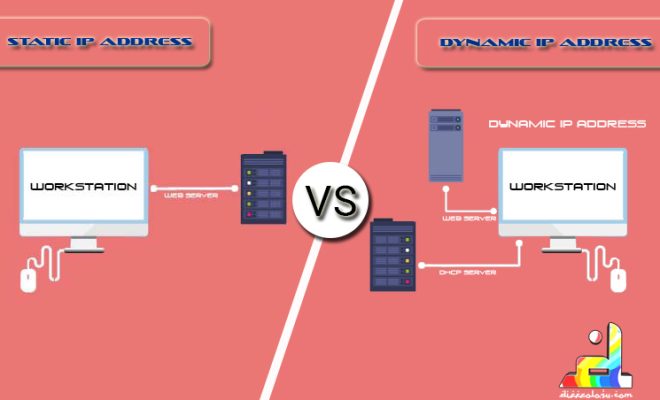What Is a Dynamic IP Address?

When it comes to identifying devices on a computer network, IP addresses play a crucial role. They act as digital addresses, enabling devices to communicate with each other over the internet. Essentially, an IP address is a unique numerical designation that identifies a specific device connected to the internet.
One type of IP address, known as a dynamic IP address, is assigned to devices by internet service providers (ISPs). Unlike a static IP address, which remains fixed and unchanging, a dynamic IP address is temporary and can change over time.
So, what makes an IP address “dynamic”? In short, dynamic IP addresses are assigned to devices via a system called Dynamic Host Configuration Protocol (DHCP). DHCP allows ISPs to assign an IP address to a device for a predetermined amount of time, or “lease.”
Essentially, when a device connects to the internet via an ISP, it is assigned a dynamic IP address from a pool of available addresses. This IP address may be used for a set period, such as a day, a week, or up to several months, depending on the ISP’s lease time. After this period has elapsed, the IP address is returned to the pool of available addresses, and the device may be assigned a new IP address the next time it connects to the internet.
There are a few advantages to having a dynamic IP address. Firstly, dynamic IP addresses are often more cost-effective for ISPs, as they can assign a single IP address to multiple devices over time, rather than having to provide a unique IP address for each device.
Additionally, dynamic IP addresses can help increase privacy and security for users. Since the IP address is constantly changing, it becomes more difficult for malicious actors to track a user’s online activities and location.
However, there are also some potential downsides to having a dynamic IP address. For example, if a user is relying on a dynamic IP address to connect to a specific service or device, a change in IP address can disrupt their connection. Additionally, dynamic IP addresses can make it challenging to host a website or run certain types of networked applications that require a static IP address.
Overall, dynamic IP addresses are a common and essential aspect of the internet infrastructure. While they may not be ideal for all use cases, they offer a scalable and cost-effective way to assign IP addresses to the multitude of devices that connect to the internet every day.






